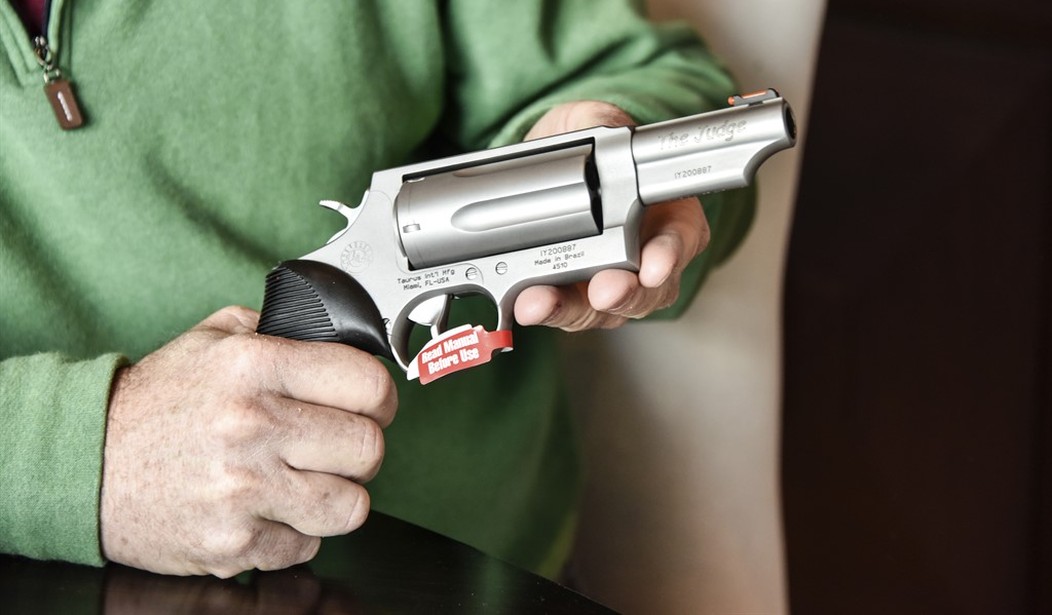Are people who are in this country illegally part of the “the People” whose right to keep and bear arms shall not be infringed? That’s the crux of a case decided by the Second Circuit of Appeals on Thursday, and the answer, at least according to a panel of three judges on the appellate court, is that it doesn’t matter. Even if illegal immigrants do possess the right to keep and bear arms, the prohibition on gun possession for those in this country without permission is constitutionally acceptable.
It’s an odd decision, in that the judges didn’t actually rule on whether or not the Second Amendment protects the rights of illegal aliens to possess a firearm. In fact, in the U.S. v. Perez opinion handed down on Thursday, the panel assumed that Javier Perez is entitled to Second Amendment protection, but the federal government can override those protections in the name of public safety.
Writing for the panel, Judge John M. Walker, a Reagan appointee to the federal bench, admitted that the court intentionally bypassed any finding on whether or not Perez, who had been in this country illegally for approximately 15 years, possesses a right to keep and bear arms.
Our court has declined to address the extent to which the Second Amendment protects conduct or individuals beyond the core guarantee of a law-abiding person’s right to keep firearms for self defense.
Recognizing that Heller left a “vast terra incognita” as to what conduct or characteristics disqualify a person from the Second Amendment’s protections, our practice in those cases has been to assume that a given firearm restriction implicates rights guaranteed by the Second Amendment and determine whether the restriction would nonetheless withstand the appropriate level of scrutiny. We see no reason to abandon that approach here.
Deciding whether undocumented immigrants like Perez have a constitutional right to possess firearms “risks introducing difficult questions into our jurisprudence, including questions that have divided other courts.” We need not decide the question here, because even if we were to assume that Perez has a constitutional right to possess firearms, we find that § 922(g)(5) is a permissible restriction when applied to the facts of this case.
How’d the court reach that conclusion? By using the standard of intermediate scrutiny; that vague and fuzzy legal middle ground between strict scrutiny (the highest level of judicial review) and a lower “rational basis” standard.
To withstand intermediate scrutiny, the law must be “substantially related to the achievement of an important governmental interest.” We have observed that regulation of firearms “has always been more robust” than governmental measures affecting other constitutional rights. Thus, our only role is to ensure that Congress formulated the challenged regulation “based on substantial evidence.”
Perez concedes that public safety in the context of using firearms is an important governmental objective. We turn our attention, then, to whether § 922(g)(5) bears a substantial relation to the achievement of that objective and conclude that it does.
That’s the trouble with intermediate scrutiny when it comes to the Second Amendment. As long as a government body can claim that a gun control law is substantially related to the government interest of protecting the public safety, it doesn’t matter if the law in question infringes on the rights of the people. The government’s interest in public safety comes before the right to keep and bear arms, even if the government can’t show how a particular gun control law actually improves the safety of the general population.
My personal feeling is that if you’re in this country illegally, you have no legal right to own a firearm, and if that’s how the Second Circuit ruled, I wouldn’t have any issue with the decision. Instead, the court used intermediate scrutiny as a dodge around the more substantive question; upholding the law on a flimsy rationale.
Second Amendment supporters are hoping that the Supreme Court will address the standard of review in 2A cases when it hands down its decision in New York State Rifle & Pistol Association v. Bruen next year, and Thursday’s decision in U.S. v. Perez is an example of why the Court needs to make it clear that intermediate scrutiny is not the appropriate standard to use when we’re talking about a right as fundamentally important as the right to keep and bear arms. The Second Circuit may have reached the correct conclusion, but how they got there poses problems for American citizens as well as those in this country in violation of the law.









Join the conversation as a VIP Member